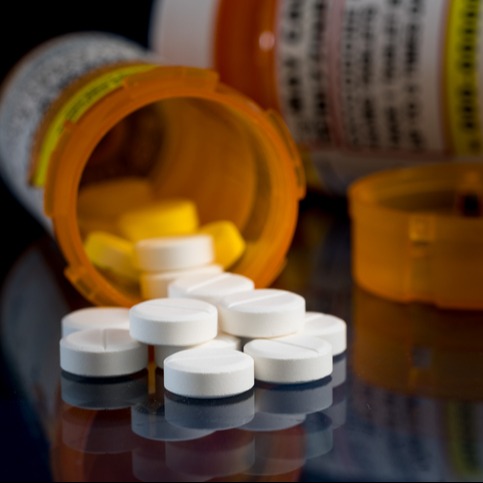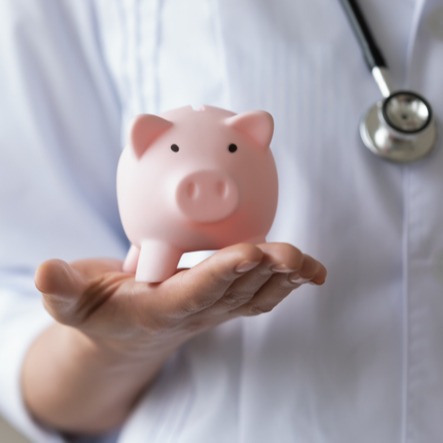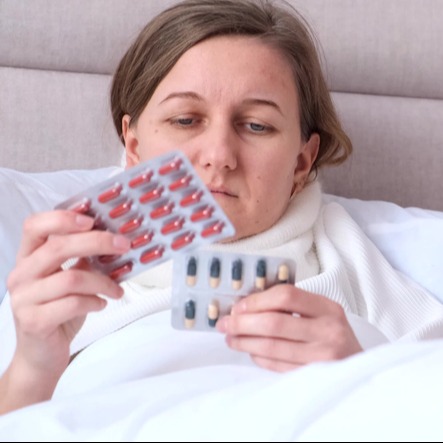
Looking to lighten your medication expenses? Consider the clever choice of switching to generic prescriptions!
These cost-effective alternatives for most patients, offer the same benefits as their brand-name counterparts but at a fraction of the cost. Generic medicines carry the same active ingredient as the brand-name medication, making them a smart solution for budget-conscious individuals. But it's worth noting that not all medications have generic options available. Patents protect new drugs, but once they expire, generic alternatives become accessible.
To determine if a generic drug is right for your specific needs, always consult with your prescribing provider or pharmacist. They will provide guidance and help you make an informed decision. Start exploring the world of generic prescriptions and potentially save money on your healthcare expenses.
What Are Generic Drugs?
Generic drugs are medications from other drug companies that have the same active ingredient as the brand-name drugs but are sold under the generic name.
They are prescribed by doctors just like brand-name drugs, but they cost less. This is because generic medicines do not require the same amount of research, development, and marketing as brand-name drugs, making them more affordable for patients.
The cost savings can be significant, with estimates suggesting that generic drugs can save patients up to 80 to 85% compared to brand-name drugs. Generic medicines approved by the FDA for most patients are as safe and effective as brand-name drugs, as they meet the same high standards of quality and manufacturing.
While there might be some differences in non-active components, these are typically considered minor and do not affect the overall effectiveness of the medication. It's important to note that patients should always follow their doctor's recommendations and inform them of any concerns or issues with the medication.
Where Can I Buy Generic Drugs? [PROMO]
If you're looking for affordable generic or brand-name medications - you may consider ordering them from Canada. It so happens to be, that you are reading this article on a [affiliate name] website, a Prescription Referral Service From Canada - click here [PDD] for a quick overlook of our store-page.
In Canada, a more centralized and coordinated approach to pharmaceutical pricing helps control medication costs. In general, our prices, even on the brand-name medications are, on average [x]% lower than local US prices, while generics, usually surpass that by a mile. One of the benefits of ordering from us is that - we will deliver the medication to your doorstep. Also we can help you to take care of your prescription by contacting you Doctor.
To see if the low-cost offerings we have are going to work for you, click here [PDD] to search for you medications, or give us a call at [affiliate phone#].
How Can I Find More Information About Generic Drugs?
As you explore generic prescriptions, it's important to know where to find more information about generic medicine.
When considering to change your medications, it's natural to have questions about the safety, effectiveness, and potential differences of your new drug choice. To address these concerns, you can consult with your healthcare provider and pharmacist for guidance, additionally you can turn to reliable sources such as the Food and Drug Administration (FDA) and the Pharmaceutical Research.
The FDA's website, fda.gov/drugs, provides valuable information on specific generic and brand-name drugs, including their approval status, bioequivalence, and safety monitoring. Additionally, please refer to "Generic Drug Facts" & "Generic Drugs: Questions & Answers" - Published by FDA.
By utilizing these resources, you can gather more information about generic and brand drug name drugs, empowering you to make informed decisions about your healthcare and medication choices.
What is the FDA's Role in Ensuring the Generic Drugs Are Safe?
The Food and Drug Administration (FDA) plays a crucial role in the healthcare system by ensuring the effectiveness of generic medicine through rigorous review and monitoring.
Their primary goal is to ensure that generic drugs are safe and effective for patients. To achieve this, the FDA sets high standards for quality and manufacturing that generic prescription medications must meet, just like brand-name products.
The FDA conducts thorough inspections of manufacturing plants for generic medicines to ensure compliance with all the standards. Additionally, the FDA's Generic Drugs Program monitors the safety of generic medicines after they are approved. By regulating and overseeing the production and safety of generic medicines, the FDA plays an essential role in safeguarding the healthcare system and ensuring that patients have access to safe, affordable and effective prescription drugs.
Do Generic Drugs Look Different from the Brand-Name Drugs?
A generic prescription may exhibit differences in appearance compared to its brand-name counterpart. Trademark laws prevent generic drugs from looking exactly like other drugs on the market. While generic medicines are recommended to have a similar size and shape to the brand-name product, they may have different colors and flavorings.
However, it is important to note that these appearance differences between generic manufacturers do not impact the performance, safety, or effectiveness of the medication. The active ingredients, dosage, quality, stability, and safety of generic drugs remain the same as brand drugs. It is worth mentioning that inactive ingredients may vary between generic and brand-name drugs. Despite these differences in appearance, generic drugs provide a cost-effective alternative while, for the most patients, maintaining the same therapeutic effect as their brand-name counterparts.
Do Generic Drugs Cost Less?
Generic drugs are known to cost less than brand-name drugs, with estimated savings of 80 to 85%. The FDA ensures that generic drugs are bioequivalent to their brand-name counterparts, meaning they work in the same way and provide the same clinical benefit for the majority of patients.
Multiple generic drug companies competing in the market also result in lower prices for patients. In fact, generic drugs have saved the U.S. healthcare system nearly $2.2 trillion from 2009 to 2019. It is important to note that generic drugs must meet the same high standards of quality and manufacturing as brand-name products. Therefore, by opting for generic prescriptions, you can save a significant amount of money while still receiving the same level of quality and effectiveness.
What Are the FDA Approval Standards for Generic Drugs?
Generic drugs must meet the same high standards of quality and manufacturing as brand-name products. The FDA requires generic drugs to demonstrate bioequivalence to the brand-name drug they are emulating. This means that the generic drug must have the same active ingredient, strength, route of administration, and use indications as the brand-name drug.
Additionally, the FDA conducts rigorous inspections of generic drug manufacturers' plants to ensure that generic drugs are produced under the same strict standards for quality and safety as brand-name drugs. So when a generic prescription drug is approved by the FDA, for most people, it is just as safe and effective as the brand-name version. To see if the generic drug is going to work for you, please consult your healthcare provider for guidance.
How to Determine if the Generic Option is Available?
Check with your doctor or pharmacist to determine if generic versions are available for the specific brand-name medicines you are currently taking.
Generic prescription drugs can provide a more affordable alternative to brand-name medications, and it may provide you with additional savings on your healthcare costs. However, not all brand-name drugs have generic versions, as the generics become available after the expiration of drug application patents.
The availability of generic versions varies depending on the drug and its patent expiration date. It's worth noting that generic drugs go through an approval process and are monitored by the FDA to ensure efficacy, and quality. Opting for generic versions of specific brand-name medicines can be a practical choice, helping you save money while still receiving the same active ingredients and therapeutic benefits.
Is it Safe to Switch from Brand Name Drug to Generic Medication?
Oftentimes patients switch between brand-name and generic medications due to changes in insurance coverage or cost considerations. While these switches are generally safe, doctors should closely monitor patients who undergo such changes and be attentive to any variations in their condition or response to treatment.
What Are the Key Differences Between Generic and Brand-Name Drugs?
Generic and brand-name drugs have some key differences, primarily related to their development, cost, and market availability. Here are the main distinctions:
Inactive Ingredients:
Generic Drugs: May contain different inactive ingredients than the brand-name counterpart, but these variations are considered acceptable.
Brand-Name Drugs: Have a patented formulation, including specific inactive ingredients. Generic versions may have slight variations, but regulatory authorities ensure these differences are safe and don't affect its effectiveness.
Cost:
Generic Drugs: Generally, are more affordable than brand-name drugs. This is because generic manufacturers don't have to cover the costs of research, development, and marketing.
Brand-Name Drugs: Tend to be more expensive due to the costs associated with research, development, and marketing. The company that develops the drug has exclusive rights to sell it for a certain period (usually 20 years), during which they can recoup their investment.
Appearance and Packaging:
Generic Drugs: Often have different colors, shapes, and packaging compared to the brand-name drug. This is allowed by regulatory authorities as long as the generic version contains the same active ingredient and meets bioequivalence standards.
Brand-Name Drugs: Are marketed with a specific appearance and packaging, which may contribute to higher recognition among consumers.
Market Availability:
Generic Drugs: Are not available until the expiration of the brand-name drug's patent, after - multiple generic versions may become available, increasing competition and lowering prices.
Brand-Name Drugs: Have exclusive market rights for a certain period, during which they are the sole product available.
Brand Recognition:
Generic Drugs: Are often perceived as less well-known because they don't carry a specific brand name, though they must meet the same quality and safety standards as brand-name drugs.
Brand-Name Drugs: May benefit from stronger brand recognition and patient loyalty.
In summary, generic and brand-name drugs have equivalent active ingredients. Regulatory standards ensure the safety of generic drugs, making the choice between the two based on factors like affordability and personal preference.
What Aare the Similarities Between Generic and Brand-Name Drugs?
Generic drugs are created to have the same active ingredient as their brand-name counterparts, with the same safety, strength, dosage form, intended use, and performance characteristics.
They work in the same way and for most patients, provide the same clinical benefit as brand-name drugs, ensuring that they receive the same quality of treatment. Therefore it may be a cost efficient alternative to the brand-name drugs.
How Can I Save Money on Prescription Drugs? [PROMO]
Cut down on your prescription drug costs by exploring money-saving tips.
In addition to considering generic prescriptions or low-cost drugs, there are other strategies you can use to save money on your medications:
First, compare prices at different pharmacies to find the best deal. Some pharmacies may offer discounts or have loyalty programs that can help you save.
Second, ask your doctor or pharmacist about prescription assistance programs, which can provide financial aid for needed medicines.
You may also - visit our store page [PDD] to see how much you can save on your medications with a CIPA Certified International Canadian Pharmacy.
How Can I Get a Prescription for Generic Drugs?
To access generic drugs and obtain low-cost prescriptions, you often have the option to request them from your healthcare provider or pharmacist. When discussing your medication needs, ask if a generic equivalent prescription is available. Generic drugs, for the most people, are equally effective and safe as brand-name drugs, but they cost significantly less, allowing you to save money.
Additionally, pharmacists can provide valuable information on generic equivalents and low-cost alternatives. It's important to note that there are also assistance programs available to help individuals who may struggle with the cost of medications. By seeking out generic drugs and exploring low-cost prescriptions, you can save money while still receiving the necessary treatment for your health.
If you're looking to save money on your medications, you may consider switching to generic prescriptions. These medications, for most, are just as effective and safe as their brand-name counterparts but come at a much lower cost.
Don't hesitate to discuss it with your doctor or pharmacist to determine if generic drugs are suitable for you. By switching to generic prescriptions, you can potentially save a significant amount on your healthcare expenses.
Frequently Asked Questions
What Is a Generic Prescription Drug?
A generic prescription drug is a medication that is chemically equivalent to a brand-name drug but is sold under its generic name. It's a more affordable option for many patients and can be determined by consulting with your doctor or pharmacist.
What Is Generic Prescribing?
Generic prescribing refers to the practice of doctors or pharmacists recommending generic drugs instead of brand-name ones. It can save drug company and you money without sacrificing quality, as generic drugs are chemically equivalent to their brand-name counterparts.
What Is the Difference Between Generic and Regular Prescriptions?
Generic medications are chemically equivalent to brand-name drugs but sold under a generic name. They're usually more affordable and can be a cost-effective option for you.
Can I Get the Generic Version of a Prescription?
Yes, you can get the generic version of a prescription. Generic drugs are affordable alternatives to brand-name medications and can be just as effective. Consult with your doctor or pharmacist to see if a generic option is available for your specific needs.
Rely on PlanetDrugsDirect.com to Buy Online Prescription Drugs
As a trusted prescription referral service, we offer important benefits whenever you order online. Each of our partner pharmacies and/or government-approved dispensaries is committed to providing the best experience possible of any online prescription referral service on the internet. We offer:
Low prices
Quick turn-around times
Generic and brand-name medications
Unparalleled customer service
Sources
Comparative effectiveness of generic and brand-name medication use: A database study of US health insurance claims - PubMed (nih.gov)
Prescription Trends-Brand-name Drugs vs Generic - PubMed (nih.gov)
Brand-name vs. generic drugs: Which is better? (medicalnewstoday.com)
 Medically reviewed by
Medically reviewed by 





